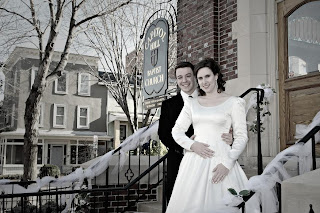The strength of Puritanism was its realism. . . . the Puritan mind was one of the toughest the world has ever had to deal with. It is impossible to conceive of a disillusioned Puritan; no matter what misfortune befell him, no matter how often or how tragically his fellowmen failed him, he would have been prepared for the worst, and would have expected no better. At the same time, there was nothing of the fatalist about him; as so often happens in the history of thought, the believers in a supreme determining power were the most energetic of soldiers and crusaders. The charge of Cromwell’s Ironsides was, on that particular score, proof positive of the superiority of the Puritan over the Anglican, and the Indians of New England learned to their very great sorrow how vehement could be the onset of troops who fought for a predestined victory. There was nothing lukewarm, half-hearted, or flabby about the Puritan; whatever he did, he did with zest and gusto. In that sense we might say that though his life was full of anguish of spirit, he nevertheless enjoyed it hugely. Existence for him was completely dramatic, every minute . . . charged with meaning. And when we come to an end of this roll call of characteristics, the one which yet remains the most difficult to evoke was his peculiar balance of zeal and enthusiasm with control and wariness. In his inner life he was overwhelmingly preoccupied with achieving a union with the divine; in his external life he was predominantly concerned with self-restraint. . . . No wonder the Puritan has been something of a puzzlement and a trial to the Gentiles. He was a visionary who never forgot that two plus two equals four; he was a soldier of Jehovah who never came out on the losing side of a bargain. He was a radical and a revolutionary, but not an anarchist; when he got into power he ruled with an iron hand, and also according to a fundamental law. He was a practical idealist with a strong dash of cynicism; he came to New England to found the perfect society and the kingdom of the elect—and never expected it to be perfect, but only the best that fallible men could make. His creed was the revealed word of God and his life was the rule of moderation; his beliefs were handed down from on high and his conduct was regulated by expediency. He was a doctrinaire and an opportunist. Truth for him had been written down once and for all in a definitive, immutable, complete volume, and the covers closed to any further additions; thereupon he devoted all the energies he could spare from more immediate tasks to scholarship and interpretation. He lived in the world according to the principles that must govern this world, with and ever-present sense that they were only for the time being and that his true home was elsewhere. “There is,” said John Cotton, “another combination of virtues strangely mixed in every lively holy Christian. And that is Diligence in worldly businesses, and yet deadness to the world: such a mystery as none can read, but they that know it.” The Puritan ideal was the man who could take all opportunities, lose no occasions, “and bestir himself for profit,” and at the same time “be a man dead-hearted to the world.” He might wrest New England from the Indians, trade in the seven seas, and speculate in lands; “yet his heart is not set upon these things, he can tell what to do with his estate when he hath got it.”
~
Perry Miller, from the introduction to
The Puritans


4 Comments:
Perry Miller rocks!! No really, I mean that.
TaNeesha
During the early 20th Century, Perry Miller's work on the Puritan's in America represented this group as rational, intellectuals with pious intentions. This countered the popular understanding of the day, which was a people who were insensitive, paronoid, and stiff. This proved as a turning point in how American historians interpreted Puritan life and early New England history. This interpretation was more sensitive and cast them a much more favorable and respectable light. While he was probably agnostic, he sure did like those Puritans and his work on them created a major shift the histography of early New England.
Here are some links that I believe will be interested
Hi! Just want to say what a nice site. Bye, see you soon.
»
Post a Comment
<< Home